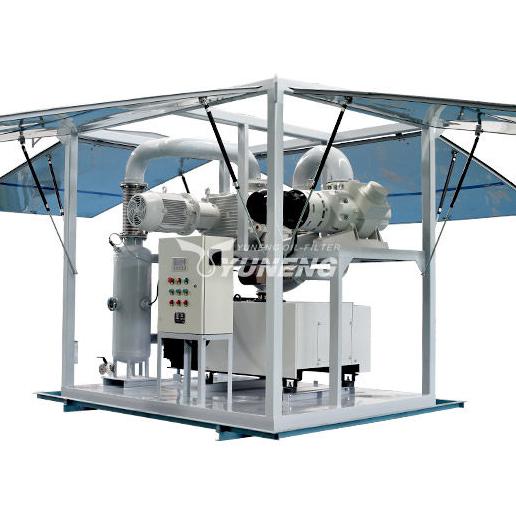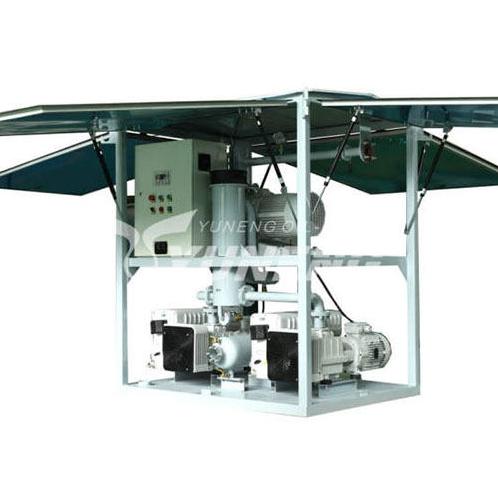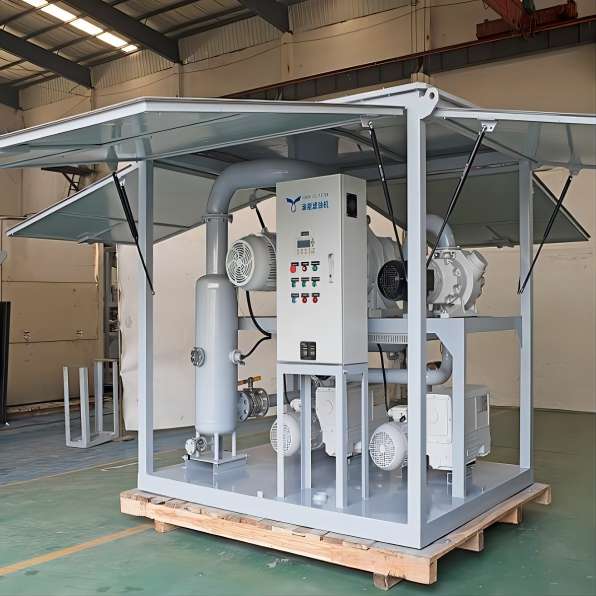Vacuum Pump Systems: Ensuring Precision and Efficiency in Electrical Applications
In the intricate world of electrical engineering, precision and efficiency reign supreme. Every component, every connection, every process must be meticulously controlled to ensure the safe and reliable transmission of electricity. Among the various tools and techniques employed to achieve this level of refinement, vacuum pumping systems have emerged as indispensable assets. These systems, with their ability to create and maintain a low-pressure environment, play a pivotal role in a wide range of electrical applications, particularly in the realm of air drying.

What is a Vacuum Pump System?
A vacuum pump system is a mechanical device that removes air or gas from a sealed container, thereby creating a vacuum. This process is achieved by utilizing various pump mechanisms, such as rotary vanes, roots blowers, or diffusion pumps, to expel air molecules from the enclosed space. The resulting vacuum, characterized by low pressure and the absence of air or gas, enables a range of processes that are sensitive to atmospheric conditions.
Types of Vacuum Pump Systems
The realm of vacuum pump systems encompasses a diverse array of technologies, each tailored to specific applications and performance requirements. Some of the most commonly encountered types include:
- Rotary Vane Pumps: These pumps employ rotating vanes to trap and displace gas, offering a combination of high efficiency and reliability.
- Roots Blowers: Employing meshing lobes to create a vacuum, Roots blowers excel in handling large volumes of gas with minimal pulsation.
- Liquid Ring Pumps: Utilizing a rotating impeller within a liquid ring, these pumps provide high suction capacity and are particularly well-suited for handling wet or contaminated gases.
- Diffusion Pumps: These pumps rely on the high-velocity collision of gas molecules to achieve high vacuum levels, making them ideal for applications requiring ultra-low pressure environments.
Applications of Vacuum Pump Systems in the Electrical Industry
Vacuum pump systems find widespread application in the electrical industry, contributing to various critical processes. Some prominent examples include:
- Vacuum Drying: In the manufacturing of electrical components, such as transformers, capacitors, and motors, moisture removal is essential to ensure optimal performance and prevent insulation breakdown. Vacuum drying utilizes a vacuum environment to accelerate the evaporation of moisture, achieving rapid and efficient drying.
- Vacuum Impregnation: This process involves impregnating electrical components with insulating resins under vacuum conditions, enhancing their dielectric strength and resistance to moisture and contamination.
- Vacuum Leak Detection: Vacuum pump systems play a crucial role in detecting leaks in electrical components, ensuring the integrity of insulation, and preventing potential safety hazards.
- Vacuum Degassing: In the production of insulating oils, vacuum degassing removes dissolved gases that can compromise the oil’s dielectric properties and contribute to premature aging.

Why Use a Vacuum Pump System for Air Drying in the Electrical Industry?
Conventional air drying methods, such as ambient air drying or heated air drying, often fall short in meeting the stringent requirements of the electrical industry. These methods can lead to prolonged drying times, inconsistent moisture removal, and potential damage to delicate electrical components. Vacuum pump systems, on the other hand, offer several compelling advantages for air drying in the electrical industry:
- Reduced Drying Time: By creating a low-pressure environment, vacuum pump systems accelerate the evaporation of moisture, significantly reducing drying times compared to conventional methods.
- Uniform Moisture Removal: The controlled vacuum environment ensures uniform moisture removal throughout the electrical component, preventing moisture pockets and inconsistencies that can affect performance.
- Gentle Drying Process: Vacuum drying operates at lower temperatures than heated air drying, minimizing the risk of thermal damage to sensitive electrical components.
- Energy Efficiency: Vacuum pump systems require less energy to achieve the desired drying results compared to conventional methods.

Conclusion
Vacuum pump systems have revolutionized air drying processes in the electrical industry, offering a combination of speed, efficiency, and precision that is unmatched by traditional methods. By harnessing the power of vacuum, these systems contribute to the production of high-quality electrical components that meet the demanding requirements of modern applications. As the electrical industry continues to evolve, vacuum pump systems will undoubtedly remain indispensable tools for ensuring the safe, reliable, and efficient delivery of electricity.
The ZJ Series High Vacuum Pumping System from YUNENG Oil Purifier exemplifies the advancements in vacuum pump technology, offering high efficiency, reliability, and environmental sustainability for various applications.
